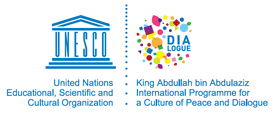Duration: 2 Hours
KEY TOPICS:
- Defining ‘information’ and ‘media’
- Exploring the importance of the media and other information providers
- Describing key learning outcomes of media and information literacy
LEARNING OBJECTIVES
At the end of this module teachers should be able to:
- Identify key learning outcomes/elements of media and information literacy
- Understand media and information literacy, and its importance and relevance in the lives of students and teachers today
- Explore the roles of media and other information providers such as libraries, archives and Internet
- Explore these roles in a variety of media and information texts
PEDAGOGICAL APPROACHES and ACTIVITIES
MULTIPLE ROLES OF MEDIA
Media and other information providers play a central role in information and communication processes. They are one way of communicating information, although their role is much broader than that. For the purpose of the MIL curriculum, media are defined (irrespective of the nature and technologies used) as sources of credible and current information created through an editorial process determined by journalistic values whereby editorial accountability can be attributed to a specific organization or a legal person. To the extent that media are an important part of every society’s communication system, their institutional make-up can mesh with a variety of non-media information providers, such as libraries, museums, archives, Internet information providers, other information organizations and citizens who produce their own content.Media play several roles. They:
- act as channels of information and knowledge through which citizens communicate with each other and make informed decisions
- facilitate informed debates between diverse social actors
- provide us with much of what we learn about the world beyond our immediate experience
- are means by which a society learns about itself and builds a sense of community
- function as a watchdog of government in all its forms, promoting transparency in public life and public scrutiny of those with power through exposing corruption, maladministration and corporate wrong-doing
- are essential facilitators of democratic processes and one of the guarantors of free and fair elections
- are a vehicle for cultural expression and cultural cohesion within and between nations
- function as an advocate and social actor in its own right while respecting pluralistic values

